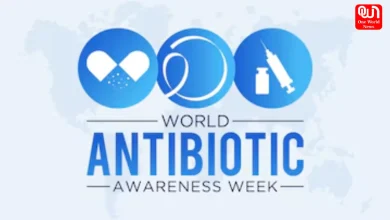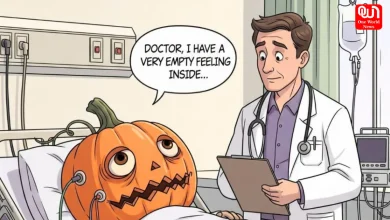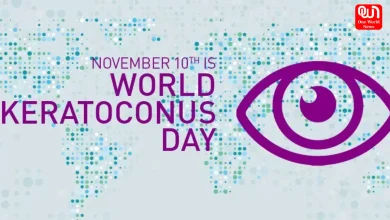BABY BLUES: THE OTHER SIDE OF MOTHERHOOD

“She was very excited at first. She was always fond of children and now that she was about to have her own her joy knew no bounds. She picked everything on her own from the socks, the mittens to the pretty little dresses. She was very particular about everything, perhaps too particular. It wasn’t apparent until the baby was actually born. I was her mother maybe that is why I noticed it first. She was always fussy about everything that was hers. But doing so made her happy. Now she didn’t seem happy. I hadn’t seen her smile in a long time. She always looked worried. I thought she was just an anxious young mother, but then she began withdrawing from people. It became impossible to ignore when she stopped playing with the baby. She stopped breastfeeding her baby and hardly if ever picked her up. I tried talking to her, but she would fall silent and sometimes her eyes would fill with tears. I was becoming increasingly worried and tried to talk to her husband about it, but he took little interest in it as he himself was quite a passive and withdrawn man. I’m not sure he even talked to her. It was painful to watch my daughter dissolve into this state and her daughter lying next to her unloved and neglected.”

This chilling recollection by Mrs. Meera Syal about her daughter’s struggles with post-partum depression brought out another side of motherhood that is constantly overlooked. The romanticized notions of being a mother and the miracle of birth are fed into our psyches from the very beginnings. All we fear is the physical pain and suffering we go through, but nobody talks about the psychological aftermaths of pregnancy.
Post-partum depression is a recognized form of clinical depression that affects women after childbirth. The silence around it makes it even more difficult for the young mothers going through it to make sense of it. They are plunged into feelings of guilt and confusion where they are not able to accept the fact that they cannot feel the joy of motherhood which they had believed would engulf them once they become mothers.
The causes behind post-partum depression are still not well understood. However, there is research that has tried to analyze the precipitating factors for post-partum depression to surface. But first, let’s try and understand what post-partum depression is.
The term of pregnancy is a vulnerable period for a woman. Her body is changing at a rapid speed. There are changes in the way she looks, there are hormonal changes inside that are happening, and this becomes an extremely overwhelming experience. You are nurturing another life inside of you and that is an important responsibility. There are bound to be certain emotional repercussions that you would experience. However if you feel these changes are becoming permanent and debilitating one, that is when you need to act and get yourself the help you need.
To understand post-partum depression, we need to understand what its cognitive, emotional and behavioral aspects are. At the level of cognition, there is mostly confusion and a sense of being disconnected. The emotional effects that this has are anxiety about parenting and being able to care for the infant, severe identity crisis, sense of isolation and loneliness from the rest of the family, and feeling a loss of control over one’s own life. The behavioral reactions as consequences are sleep deprivation, loss or sudden hike in appetite, inability to play or care for the child, incessant crying etc.

The onset of post-partum depression is generally between two weeks to a month after delivery. However, current research has also indicated that 50% of post-partum depression begins prior to the delivery. When these feelings of inadequacy about parenting turn into depression, it begins to interfere with the mother-infant relationship and also starts to adversely affect child development. Inconsistent care giving from the mother has been seen to unhealthy attachment styles that children develop in later life. These children are also at a high risk of developing behavioral disorders like Oppositional Defiant Disorder, Conduct Disorder and Hyperactivity Disorder.
UNDERSTANDING CAUSES BEHIND POST-PARTUM DEPRESSION
Potential causes behind post-partum depression are hormonal, genetic and major life events. Profound lifestyle changes that accompany the birth of a child in a mother’s life trigger intense emotions. However there are other factors that put the expecting mother at risk like pre-natal depression, personal or family history of depression or other anxiety disorders, smoking, absence or dearth of social and marital support, previous miscarriages etc.
Most commonly found factor that attributes to the development of post-partum depression is the lack of social and familial support. It manifests itself either in the form of no assistance from the father or other family members in caring for the child and/or the mother, lack of financial support, violence in the family. This puts the woman in a disadvantaged position where she feels unprotected and this sets in motion the insecurities. The evolutionary perspective on post-partum disorder accords with this idea. According to this perspective, post-partum depression allows the mother to reduce her involvement in the upbringing and care of the child when the resources are limited. In the absence of support from either the father and/or the family members, the mother feels overwhelmed with the responsibility of the bringing up a child alone and hence she recedes into an abyss of depression. Recent studies have also supported the this theory, for instance, a study by PJ Cooper, M Tomlinson et al, found post-partum depression to be highly associated with poor emotional and practical support from the partner.

This is where we can understand the importance of the rituals and ceremonies surrounding the birth of a baby. Kruckman, an anthropologist suggested in his observations from the field that rituals play an important function in conveying support and encouragement to the mother in a, “meaningful and sincere manner as they directly affect the hypothalamus, pituitary and adrenal functions and the production of endocrine signal molecules and reduce the experience of anxiety and panic in post-partum women.” The celebrations and festivities assure positivity and assurance to the soon-to-be mother and she doesn’t feel like she’s doing this alone.
POST-PARTUM DEPRESSION IN FATHERS
Although less reported, but prevalent is post-partum depression in fathers. It can be quite demanding for the father as well as he is supposed to be the provider and since he isn’t the one going through physical pain, he is also assumed to be a pillar of strength. Sometimes they feel dissociated from the whole process of child care. Researchers believe that perhaps because men tend to hide their feelings as signs of weakness and begin to withdraw it becomes very difficult to extend support to them. This also leads to them being less involved in the care giving process and as a consequence leads to the mother feeling lonely and insecure.
FACTS ABOUT POST-PARTUM DEPRESSION
While researching on post-partum depression, it was quite startling to know that one in every seven women suffers from post-partum depression. Around 20% of the women suffering post-partum depression have suicidal thoughts. However most of the cases go unreported due to guilt and embarrassment.
A curious after effect of mothers suffering from post-partum depression is early weaning, that is, they stop breastfeeding their child early. According to a study depressed mothers tend to be at a higher risk for quitting breastfeeding. This study conducted in the year 2000 by Misri, Sinclair and Kuan 83% of women became depressed and then stopped breastfeeding.
Interestingly, a 2004 study by Jones and colleagues, published in the Biological Psychology Journal suggests that breastfeeding actually protects infants from the harmful effects of maternal depression.
Maternal depression has been found to have a deeply negative effect on a child’s development including cognitive abilities, verbal skills and school readiness. This depression also tends to be prolonged in women according to a recent report in the Harvard Review of Psychiatry which says post-partum depression remains a long-term problem for 30%-50% of the affected women.
RECOVERING FROM POST-PARTUM DEPRESSION
Pulling yourself out of depression isn’t an instant process. It takes a lot of time to navigate through the labyrinth of emotions that surround you during the depression. It seems like an unending abyss that you are falling into and there is no way out.
But don’t lose heart. There is a way out.
Once you understand what you’re going through isn’t something to feel guilty about and that you need to seek help, you start a process of healing.
If you have a strong family support system, then discuss this with them and seek psychological counseling from a professional psychotherapist. You need to be willing to get better.
Understand that you weren’t born a parent. A parent is born with the birth of a child and the roles and responsibilities of a parent will come to you steadily. Do not feel burdened or anxious by it. You will transfer the anxiety to the child as well. The best advice for parenting is to be a happy person. That makes all the difference.
Yes your lifestyle will majorly change. Consider the possibility that this change may perhaps be for good. If you feel adjusting to this new lifestyle is becoming difficult, seek help from your partner, your family, a therapist or anyone you feel comfortable. It does not reflect badly on you if you seek help of others.
Don’t beat yourself up so much. You have gone through an intense physical and psychological trauma. It will take time to recover from it. Go easy on yourself. Don’t push yourself to feel the romanticized ideas of parenthood. They will come to you on their own. Take care of yourself. That is the most important way you can care for your child.







